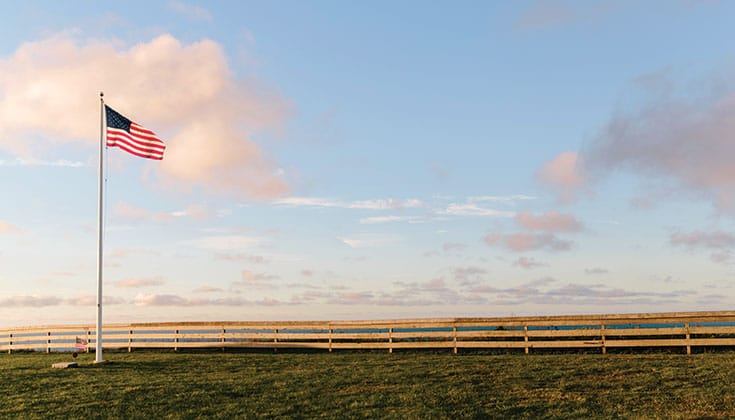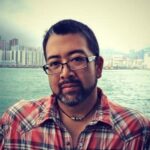Believe in Possibility
by Ira Sukrungruang
A few days before my son, Bodhi, was born, a man entered a nightclub in Orlando and extinguished forty-nine lives. I shut down. I couldn’t bear to hear about another shooting, another bombing, another death. I suffocated. I was going to be a father, and the thought of my son coming into this world of violence and hate shook me to the core. But he came. And he was beautiful.
This is our world, this mix of tragedy and joy.
When I look at my son, I see possibility. I see a future. It is bright. And it is dark. I can’t shield him from this. The American journalist Ta-Nehisi Coates wrote to his son, “I would have you be a conscious citizen of this terrible and beautiful world.” I want the same for Bodhi.
There is nothing we can do to stave off pain. It will come. But how we handle ourselves in the aftermath is a truer definition of who we are as citizens. Awareness. Open-mindedness. I want my boy to believe in possibility. To hope. To strive for something better.
Be a Citizen–Bodhisattva
by Roshi Pat Enkyo O’Hara
An essential quality of a good citizen in these difficult times is to have the heart of a bodhisattva. According to the traditional definition, a bodhisattva is someone who chooses not to enter the state of perfect peace, nirvana, in order to help all sentient beings end their suffering. What’s in a bodhisattva’s heart that helps him or her make a difference in the lives of all beings?
Tolerance helps the bodhisattva stay calm and equanimous in difficult situations.
There’s the quality of generosity, the willingness to be of use, to offer what he or she can. That generous urge, called dana, is checked by sila, attention to the ethics of a situation.
Tolerance helps the bodhisattva stay calm and equanimous in difficult situations.
When it is time for vigorous action, the bodhisattva is unstoppable. He or she is never discouraged because he or she possesses prajna, the wisdom to see the bigger picture and discern appropriate action for all beings.
Finally, the heart of the bodhisattva is renewed and expanded by the daily practice of contemplation and stillness, allowing the bodhisattva to return to the work of serving all beings.
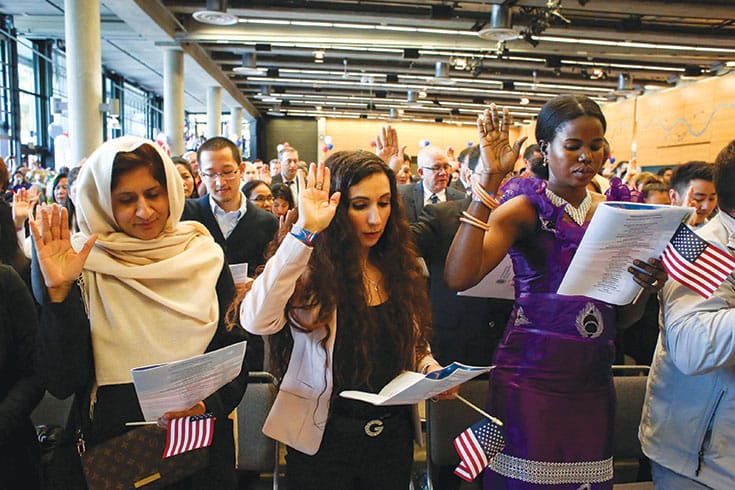
Strangers Become Kin
by Karen Connelly
In May, my brother, David, was run down by a dump truck in Phuket, Thailand. My sister and I campaigned online to find enough of his rare blood type to keep him alive, but the doctors told us that he’d likely die.
To be a good citizen is to be a good sibling. In Buddhist and biological terms, our kinship is limitless. We’re related to all beings, ecologically, economically, politically. My recent efforts to help my brother brought this home to me. Many people—friends, colleagues, acquaintances, total strangers—offered us the most tangible gift of kinship: their blood. They also donated money. If David lived, we’d have to fly him home to Canada; the cost of the private Thai hospital was destroying us financially.
Good citizenship means to acknowledge and embrace our kinship with those we love, with those we hate, and with the earth that sustains us. We resist this because such an embrace requires great energy. It requires action without violence, effort without the promise of fruition. For David, many people labored toward a goal that was, perhaps, unattainable. Despite the transfusions, he could have died from the severity of his injuries.
But he lived. After months in a hospital bed, he took his first unsteady steps back into the world, reborn, filled with gratitude, his life saved in uncountable ways by strangers who had become kin.
Let’s Be Civil
by Charles Johnson
Good citizenship is based on civility. We can achieve this if we mindfully practice two things: humility and egoless listening.
Other people will always be a mystery that outstrips our perceptions and conceptions.
These practices reinforce one another. They involve deep listening to discover how others reveal themselves to us, moment by moment, and letting go of everything but the basic assumption that others want happiness and freedom from suffering, just as we do.
Beyond this assumption, we should not project our fantasies, ideas, or desires onto others. After all, other people will always be a mystery that outstrips our perceptions and conceptions.
When we experience anger, it is helpful if we pause to remember that our lives are remarkably brief and our deaths can come at any moment. In this way, we see how our worldly desires and conflicts with others are both sad and ephemeral.
You Make All the Difference
by Karen Maezen Miller
Be generous with your attention, that you might dispel the loneliness and isolation that divide us.
Be generous with your time and money. They go furthest when freed from your own hands.
Make room for all the people—even if they’re the majority—who don’t think or act like you. Make an enemy of no one.
Be humble. Let others speak. Let others rant. Give argument no mind. Your opinion alters no one’s. Be humble.
Have abundant patience and trust, knowing that things change in ways you cannot predict. Recognize hate as fear, greed as poverty, and ignorance as our common plight.
Have faith. Spread cheer. Do good. With an open heart and clear mind, vote. Everything you think, say, and do, however small, has a monumental consequence. Your influence is boundless, so take infinite care.
You make all the difference in the world today. Give it all you’ve got.
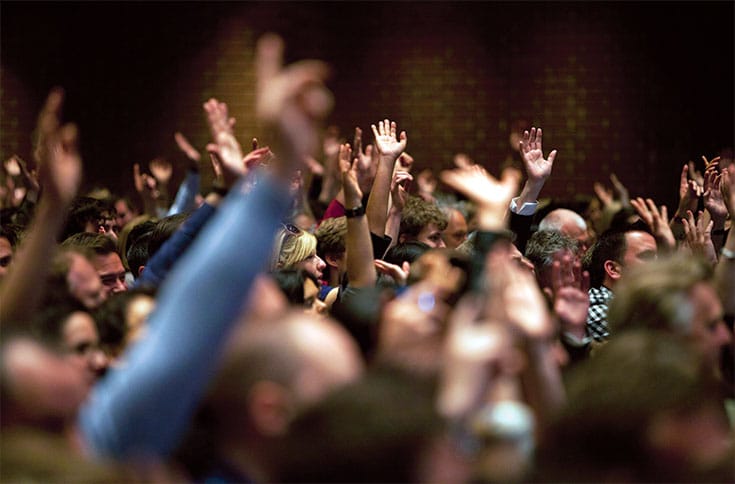
Do Your Little Bit of Good
by Toni Bernhard
When the Buddha said, “A follower of the dharma does not contend with anyone,” he was presenting the essential qualities of a good citizen—open-mindedness and nonattachment to views.
As a good citizen, you grant those with opposite views the benefit of the doubt as to their intentions. At the same time, however, you work in accordance with your own views to alleviate suffering and make life better for others. In the words of Desmond Tutu, “Do your little bit of good where you are; it’s those little bits of good put together that overwhelm the world.”
You might be an activist in national or local politics. You might volunteer as a hospice worker. You might help a neighbor in need. Whatever you do, by not contending with others, a good citizen acts out of compassion, not anger, and alleviates suffering one step at a time.
The Kitchen Sermons
by Shinso Ito
How we treat others in our routine interactions is the most important part of being a good citizen. Through our personal relationships, we can bring out the best in ourselves.
Our Buddhist community, Shinnyo-en, was founded by my parents, Shinjo and Tomoji Ito. In their early years their home doubled as a temple, and people were constantly gathering in Tomoji’s kitchen as she cooked. Members of our community today draw on the example she set. The simple yet powerful behaviors she lived by have become known as the Kitchen Sermons. Some examples are:
Be gentle, yet strong.
Do not bring sadness to people.
Reflect upon yourself before criticizing others.
Smile when you talk to people.
Treat people with respect. Put yourself in their place.
Sharing with others the joy of living in wisdom and compassion is a spiritual practice, which helps bring out our own true self as good citizens.
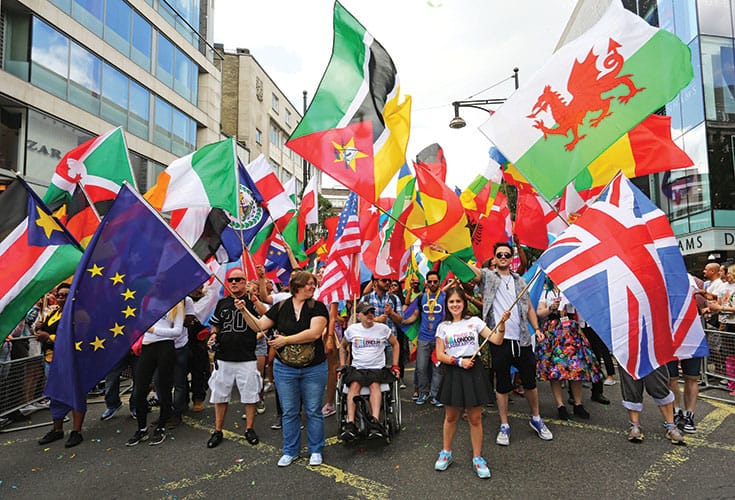
Citizenship Is a Practice
Mitchell Ratner
For me, good citizenship is a bodhisattva practice. It is an opportunity to respond with an open and caring heart to the suffering in me and around me.
Sometimes the practice means looking deeply into the origin of the electrical power we use. How is it produced and with what repercussions?
Sometimes it means preparing and serving meals at a resource center for those who are in need, offering nourishing food and an empathetic presence.
From the personal to the political, the bodhisattva ideal of citizenship is to find common ground amid our differences.
Sometimes it means remembering—even in the midst of partisan conflict—that no one is our enemy. Those who are on the other side are not evil people; their hurtful words and actions arise from their suffering and ignorance. They are deserving of compassion, not hatred.
And sometimes the practice means taking overt political action, opposing injustice, dedicating ourselves to the causes that inspire us, and supporting the most mindful, caring, and competent candidates.
From the personal to the political, the bodhisattva ideal of citizenship is to find common ground amid our differences and to model openness, kindness, and respect.
Only Love Dispels Hate
by Larry Yang
Good citizenship involves more than just the political work of equity. It involves respecting the sacredness of life within each community and individual.
We despair over the senseless carnage and repressive violence that we see in the world, but in the face of our despair we can hold and care for each other. In solidarity with our deepest humanity, we can commit to live the truth spoken of in every spiritual tradition across human history and exampled in the Buddha’s words:
Hate never yet dispelled hate. Only love dispels hate.
This is the truth, ancient and inexhaustible.
From that truth, we create justice in the only way possible; that is, through just means. We do not attempt to justify any form of oppression; for instance, we do not try to justify racism because of terrorism. Instead, we endeavor to dissolve all oppressions, for the freedom of all communities and the justice of all beings.
